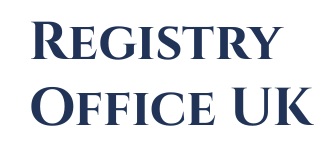How to Register a Death in England and Wales (Step-by-Step Guide)
Last updated: October 2025
Reviewed by the RegistryOffice.uk editorial team
In England and Wales, a death must normally be registered within 5 days of the date of death (this can be extended if the coroner is involved). Registration is completed with a local register office and provides the documents needed for funeral arrangements and legal matters.
Important: RegistryOffice.uk is an independent information website and is not affiliated with the UK Government or the General Register Office. Always confirm details with your local register office or GOV.UK.
When You Must Register a Death
- Standard timeframe: within 5 days of the death.
- If the coroner is involved: registration may be delayed until investigations are complete. The coroner will send the required paperwork to the registrar.
Who Can Register
- A relative of the person who has died
- Someone present at the death
- The person arranging the funeral (not the undertaker)
- The occupier of the premises where the death occurred
Documents You’ll Need
- Medical Certificate of Cause of Death (issued by the doctor or coroner)
- Identification for the person registering (e.g., passport or driving licence)
- Any available documents for the deceased (birth certificate, NHS number/card, marriage/civil partnership certificate)
Where to Register
You should register with the local register office in the district where the person died. If it’s difficult to travel, some areas allow telephone appointments or registration by declaration.
Find your nearest register office:
👉 GOV.UK – Register offices directory
You can also browse our Registry Offices Directory for contact numbers and opening times across England and Wales.
What Happens at the Appointment
- The registrar reviews the medical certificate and confirms details about the deceased (full name, date and place of birth, occupation, usual address, and details of a spouse/civil partner).
- You check the entry for accuracy and sign the register.
- The registrar issues a certificate for burial or cremation (the “green form”) for funeral arrangements.
- You can purchase official death certificates (certified copies of the entry) for legal and estate matters.
Certificates and Fees
- Registration itself is free.
- Certified copies (death certificates) are typically about £11 each in England and Wales.
After Registration: What Happens Next
- Use the Tell Us Once service (available in most areas) to notify government departments in one go.
- Inform banks, pension providers, insurers, and utility companies.
- Provide copies of the death certificate to solicitors or executors handling the estate.
Frequently Asked Questions
Can I register a death online?
No — you will usually attend an appointment in person or by phone, depending on local arrangements. Check with your local register office.
What if the coroner is involved?
The coroner will complete their investigation first. They’ll provide documents directly to the registrar; you’ll then complete registration.
How many death certificates should I order?
Many families order several certified copies to provide to banks, pension providers, and other organisations.
